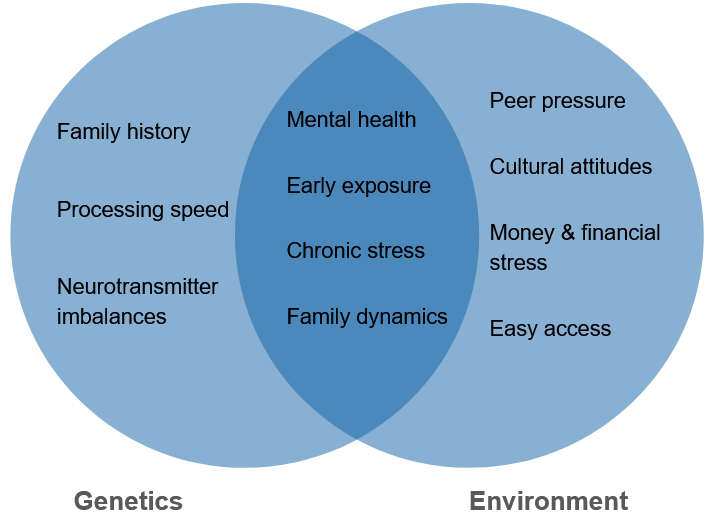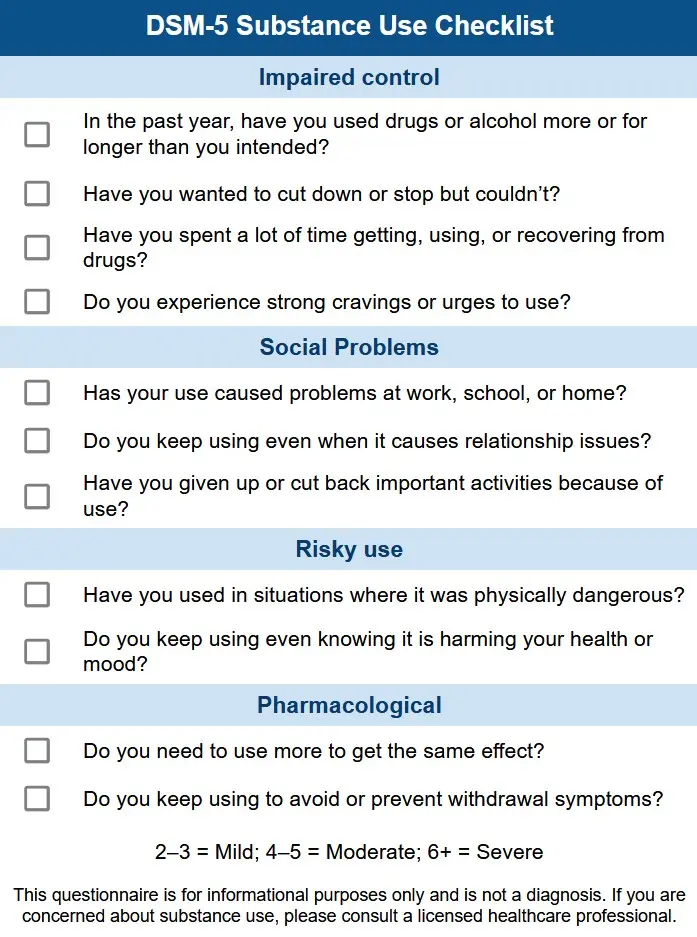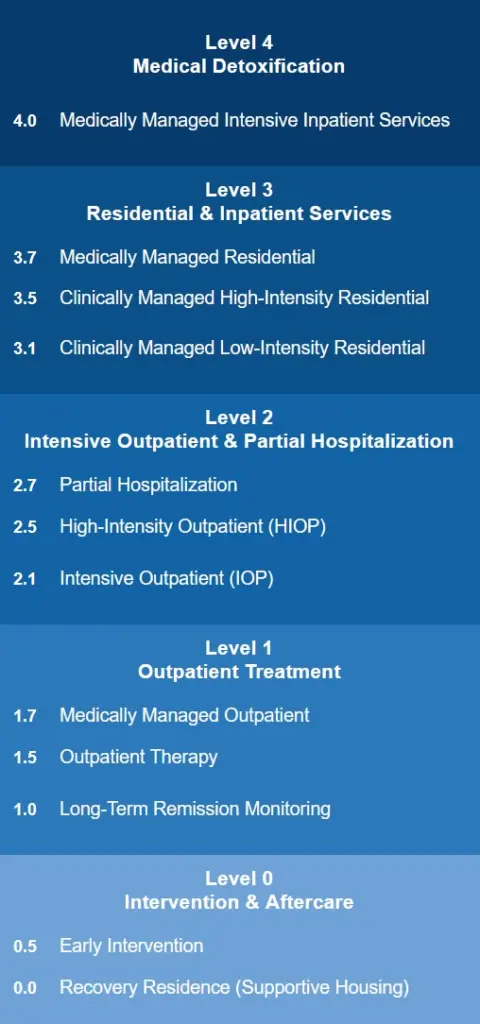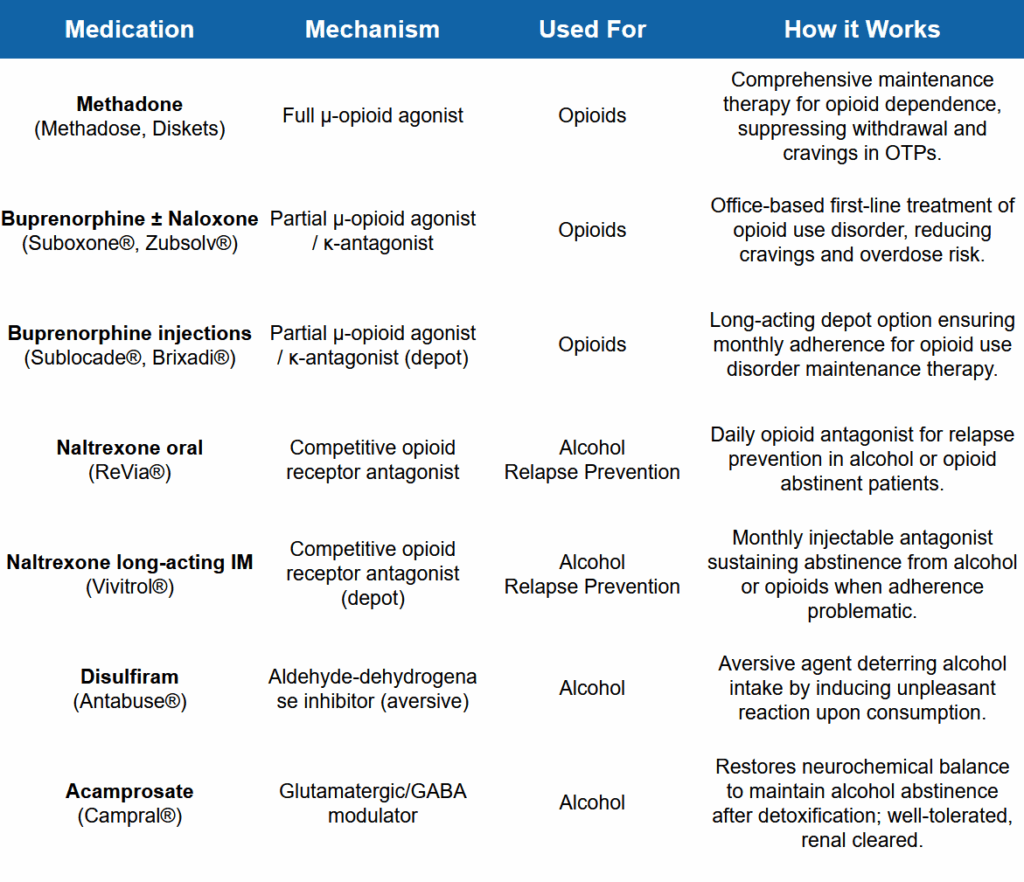Knowing where to begin with treatment for alcohol addiction can feel overwhelming. But, treatment options like medical detox, specialized alcohol rehab programs, and peer support groups can help you find lasting recovery and healing.
In this guide, you’ll learn why alcohol use disorder develops, the warning signs that signal it’s time to stop drinking, and how to pick the right level of care like inpatient rehab or outpatient treatment match your specific needs.
We’ll also explain how FDA-approved medications can ease alcohol withdrawal symptoms, explore telehealth therapy options, and break down the cost of alcohol rehab treatment.
Read on to reclaim your health and future from alcohol.
Key Points
- Alcohol use disorder stems from a mix of genetic, environmental, and mental health factors
- Treatment that combines medication, therapy, and peer support doubles success rates over using any single approach alone.
- Severe alcohol detox can have deadly side effects if not medically managed.
- After detox, therapy programs treat alcohol use disorder and mental health together, cutting relapse risk and improving success rates.
- Look for alcohol rehab centers with positive reviews, specialized programs, and strong staff to client ratios.
Understanding Alcohol Addiction
Alcohol addiction begins with a simple reality that makes it different from many other SUD disorders: ethanol is a legal, socially accepted drug that slips easily into everyday life. From toasts at weddings to tailgate parties, drinking feels “normal,” so its dangers tend to fade into the background.
However, the numbers tell a different story.
1 in 10 Americans
28.9 million Americans aged 12+ qualified as having alcohol use disorder in 2023 – nearly one out of every 10 adults.
175,000 Deaths
Excessive alcohol use now claims more than 175,000 U.S. lives a year, far outpacing many other preventable causes of death.
Beyond the personal tragedy, heavy drinking fuels workplace accidents, family conflict, and soaring healthcare costs.
Let’s explore how alcohol rewires the brain and why some people slide from casual use to deeper dependence.
What Is Alcohol and Why Is It Addictive?
When yeast ferments sugar it produces ethanol, the only form of alcohol humans can safely drink. Once in the bloodstream, ethanol quickly crosses the blood brain barrier and acts as a central nervous system depressant.
It releases neurotransmitters like dopamine and amplifies GABA, creating relaxation, warmth, and lowered inhibitions. With repeated use the brain fights back by dialing down how many of these feel good chemicals get released.
The result?
Tolerance (needing more drinks for the same buzz) and withdrawal (shakes, anxiety, even seizures when you stop). This biological tug of war explains why willpower alone often isn’t enough to quit drinking.
What Is Alcohol Use Disorder (AUD)?
Alcohol Use Disorder (AUD) is the clinical label for problem drinking that meets two or more of 11 criteria outlined in the DSM-5. Some of these criteria include: craving, repeated failed cut-downs, or continuing to drink despite the harm it causes.
It’s important to note that not all drinking indicates alcohol addiction. AUD is defined by a consistent pattern of unhealthy behaviors surrounding alcohol that, when combined, can cause damage to both the person drinking and others in their life.
Causes & Risk Factors
Alcohol addiction rarely springs from a single source. Instead, it stems from the complex interaction of genes, environment, and mental health.

Genetic Factors:
- Family history of alcohol addiction (genetic predisposition)
- Genetic variations influencing alcohol metabolism (e.g., enzymes ADH and ALDH)
- Biological differences in brain chemistry (e.g., dopamine, serotonin, GABA neurotransmitter functioning)
Environmental Factors:
- Peer pressure and social influence
- Cultural acceptance or promotion of alcohol use
- Accessibility and availability of alcohol
- Socioeconomic stress and poverty
- Early exposure to parental or familial alcohol misuse
Mental Health Factors:
- Depression and anxiety disorders
- Post-traumatic stress disorder (PTSD)
- Bipolar disorder
- Personality disorders (e.g., borderline personality disorder)
When these biological and environmental forces converge, they create a perfect storm for Alcohol Use Disorder. Drinkers with two or more of these factors working against them will have a much harder time getting sober without proper professional help.
So how do you know when regular use crosses the bridge into a more serious disorder?
Signs & Symptoms of Alcohol Addiction
Some of the main signs and symptoms of alcohol addiction include:
- Rising tolerance: needing more drinks to feel the same buzz.
- Withdrawal symptoms: shakes, sweating, nausea, or seizures after only a few alcohol-free hours.
- Powerful cravings: constant thoughts about the next drink or planning life around alcohol access.
- Loss of control: drinking more or longer than intended, with repeated failed cut-downs.
- Neglected roles and hobbies: missed work, slipping grades, abandoned interests.
- Drinking despite harm: continuing even after DUIs, health warnings, or relationship breakdowns.
Here is a quick self-assessment quiz based on the 11 DSM-5 criteria mentioned earlier that can be used to see if you should talk to your doctor about your drinking.

How to analyze your results:
- Mild alcohol addiction: answered “yes” to 2 or 3 questions
- Moderate alcohol addiction: answered “yes” to 4 or 5 questions
- Severe alcohol addiction: answered “yes” to 6 or more questions
Remember: alcohol use disorder is a treatable condition, not a moral failing. With the right help and some effort, you can improve your drinking habits.
Call
800-985-8516
( Sponsored Helpline )
to talk to someone today about your alcohol use and explore treatment options near you.
What Are the Risks of Excessive Alcohol Consumption?
The short and long-term effects on health from excessive alcohol use are varied and potentially severe. Some of the most prominent health impacts are as follows:
Short Term Health Effects of Alcohol
- Increased Risk of Injury: Alcohol use can impair decision-making abilities. The risk of involvement in falls, drownings, burns, and vehicle crashes increases.
- Involvement in Violent Incidents: Examples of violence include homicide, suicide, and sexual assault. The National Center for Chronic Disease Prevention and Health Promotion (NCCDPHP) reports that 40% of people who died violently had alcohol in their bloodstream.
- Risky Sexual Behavior: Binge drinking can cause people to have unprotected sex leading to a risk of sexually transmitted infections with multiple partners and unintended pregnancy.
- Fetal Alcohol Syndrome: Alcohol use during pregnancy can result in pregnancy and birth complications, and Fetal Alcohol Syndrome, whereby the child has physical problems and issues with behavior and learning. As no safe amount of alcohol has been identified, health professionals recommend that pregnant women do not consume any alcohol.
Long Term Health Effects of Alcohol
- Heart Problems: Prolonged excessive alcohol use can cause heart disease, high blood pressure, and an increased risk of stroke.
- Reduced Brain Function: Alcohol slows down communications within the brain, which decrease brain activity. Over time, people can develop learning, memory, and mental health problems.
- Increased Cancer Risk: The National Cancer Institute (NCI) states that there is a strong scientific consensus that alcohol drinking can cause several types of cancer. Alcohol can increase the risk of developing mouth, esophagus, colon, rectum, and breast cancer, amongst others.
- Poor Liver Function: The liver cleanses the blood, and too much alcohol can lead to fatty liver disease, cirrhosis, and hepatitis.
When to Seek Professional Help
If you’ve tried to cut back and can’t, need a “eye-opener” drink to steady your hands, or feel edgy, sweaty, or shaky when alcohol wears off, it’s time to involve a professional.
These red flags signal physiological dependence and heightened medical risk. Take the NIAAA’s brief Rethinking Drinking self-check and share the results with a physician or addiction counselor.
Call A Treatment Provider
For a conversation about what treatment options are available to you.
Make a Call
Evidence Based Treatment Approaches
Alcohol addiction treatment works best when it is matched to your unique motivation, medical risks, and support network.
Recent research suggests that an integrated, stepped strategy produces better success rates and long term results compared to one-size-fits-all programs. Below are seven pillars of evidence based treatment for alcohol addiction most often recommended by addiction treatment providers.
Levels of Care
Levels of care for alcohol treatment follow the ASAM continuum:
- Level 1: Outpatient therapy, 12-step groups
- Level 2: Intensive outpatient and partial hospitalization programs
- Level 3: Inpatient and residential treatment
- Level 4: Medically monitored detox and inpatient treatment

Alcohol treatment is most successful when starting with the highest level of care necessary, and then slowly working down to lower levels as treatment progresses.
Medically Supervised Detox & Withdrawal Management
Medically supervised detox and withdrawal management is usually the first stop on the road to recovery from alcohol use disorder. During this stage, doctors and nurses watch over you around the clock to monitor potentially life-threatening side effects of alcohol withdrawal.

Withdrawal can start with shaky hands about six hours after your last drink, sometimes progressing to seizures within two days. In severe cases, these shakes and seizures can progress to a dangerous state called delirium tremens around day three, which can be fatal if not managed properly.
To keep you safe and comfortable, clinicians regularly check your symptoms with a simple rating tool (CIWA-Ar) and give carefully chosen medicines like benzodiazepines, phenobarbital, or gabapentin to calm the nervous system and prevent seizures.
Once the dangerous side effects of alcohol withdrawal have been managed, more traditional forms of alcohol rehab can begin.
Behavioral Therapies
Behavioral therapies give alcohol treatment staying power through proven techniques like cognitive-behavioral therapy, motivational interviewing, and contingency management.
A 2025 systematic review showed online CBT cut heavy drinking days by roughly 25 percent. For adolescents, family or systemic therapy brings parents and siblings into the process, teaching coping skills and challenging drinking thoughts.
FDA-Approved Medications
FDA-approved medications can help manage withdrawal symptoms during alcohol detox and long-term recovery. Medications used to treat alcohol addiction include:
- Naltrexone (oral or extended-release) to curb cravings
- Acamprosate to stabilize brain chemistry
- Disulfiram to deter drinking via unpleasant reactions

Off label drugs like topiramate and baclofen can help some hard-to-treat cases, and GLP-1 agonists (Ozempic, Wegovy, Zepbound) are in early trials to see if they can promote long-term sobriety.
It’s important to remember these medications are not magic cures for alcoholism, and they work best alongside counseling and therapy.
12-Step Programs
12-step programs and other peer support groups like Alcoholics Anonymous and Women for Sobriety provide a free treatment alternative that gives members accountability, practical coping tips, and a sober social network.
Most 12-step groups incorporate a spiritual aspect and surrender to a higher power as part of the healing process. If you prefer a non spiritual group therapy approach, there are also secular, evidence based options like SMART recovery.
Studies show 12-step facilitation can equal or outperform formal therapy for quitting drinking, especially when combined with clinical care. However, 12-step programs on their own are generally not as effective as traditional forms of drug rehab.
Telehealth, eHealth & Online Tools
Telehealth, eHealth, and online rehab options bring alcohol treatment anywhere through video visits, text coaching, breathalyzer-linked apps, and online forums.
A 2024 randomized trial found tele-AUD services boosted engagement by 50 percent over usual care, expanding access, reducing stigma, and letting clinicians monitor progress between sessions.
Dual Diagnosis Treatment
Dual diagnosis care treats alcohol addiction and co-occurring mental illnesses like depression, anxiety, bipolar disorder, and PTSD in one coordinated program.
Teams of addiction specialists and psychiatrists align medication, psychotherapy, and peer support, preventing patients from ping-ponging between silos. Integrated treatment lowers relapse and suicide risk while improving overall quality of life.
The Treatment Journey: Step-by-Step
Alcohol recovery isn’t a single event, but rather a sequence of clearly defined phases. Each phase has its own daily rhythm, specialized team members, and short-term goals that build toward lasting sobriety.
By knowing what happens first, next, and later, you and your family can move through treatment with realistic expectations and greater confidence.

Here’s what you can expect from a full course of alcohol rehab, from detox to long-term recovery.
1. Pre Admission & Assessment
Your journey starts with a phone or online screening, insurance check, bloodwork, and first day interview. Clinicians set SMART goals and place you in the right level of care.
2. Detox & Stabilization
Nurses monitor vitals every few hours, score withdrawal symptoms, and give comfort meds, hydration, and sleep support so your body can clear alcohol safely.
3. Residential Treatment
A typical schedule runs 7 a.m. to10 p.m.: CBT groups, one-on-one therapy, psycho-education, yoga or recreation, peer meetings, and evening reflection. A physician, therapist, and recovery coach track progress in the EHR.
4. Intensive Outpatient / PHP
After residential or for milder cases, you attend 9 to 20 therapy hours while living at home, submit breathalyzer or urine screens, and complete craving journals and trigger maps between sessions.
5. Family & Support Involvement
Loved ones join weekly education nights or Zoom groups, practice boundary-setting exercises, and receive case-manager updates (with consent) to become allies rather than enablers.
6. Weekly Progress Reviews
The care team huddles every seven days to adjust goals, step you up or down the continuum, and handle insurance re-authorizations, celebrating milestones like your first sober weekend.
Before discharge you draft a relapse prevention plan, schedule therapy and MAT follow-ups, tour recovery housing, and install alumni apps or text check-ins for real-time support.
8. First Year Milestones
Expect 30, 90, and 180 day check-ups, possible MAT adjustments, and growing “recovery capital” through employment, hobbies, fitness, and sober community events.
Costs of Alcohol Treatment
According to the National Drug Helpline, the current average costs for alcohol rehab are:
- Detox/Inpatient: $300 to $1000 per day; with programs typically 30, 60, or 90 days
- Intensive Outpatient (IOP): $100 to $300 per day
- Outpatient: $50 to $250 per day
- Medication Management: $20 to $50 per day, ongoing for 3+ months
These are the average costs of AUD treatment before insurance coverage or any other kind of payment assistance.
The wide range in daily cost is due to a variety of factors including local cost of living, facility location, amenities, and staff to patient ratio.
The average daily cost can seem overwhelming when looking at the raw numbers listed above, but it’s important to remember two things:
- The long-term cost of drinking and health problems that come from it will cost more than any 30 day rehab program
- Private health insurance can help greatly reduce these costs
There are also grant and subsidy programs that may partially cover the costs of treatment, and many centers will also offer sliding scale payment systems so you only pay what you can afford based on your income.
Does Insurance Pay For Alcohol Rehab?
Yes, private insurance plans do cover rehab for alcohol addiction.
All ACA-compliant health insurance plans must cover substance-use disorder services, including treatment for AUD, at parity with medical care. Plans cannot impose annual or lifetime dollar caps, though you’ll still owe deductibles or co-insurance.
Learn more about private insurance coverage for alcohol rehab and see what coverage is offered by your provider.
Choosing the Right Alcohol Addiction Treatment Center
Finding an alcohol treatment center is part medical decision, part life investment. Credentials, cost, and culture all shape outcomes, so compare facilities the same way you would a heart-surgery unit: by asking how safe, evidence-based, and personalized their care really is. Use the guideposts below to narrow your shortlist.
Accreditation & Licensing
Look for national accreditation from the Joint Commission or CARF, state licenses, and a workforce that includes LPCs, LCSWs, physicians, and registered nurses. Look for centers that publish outcome data (program completion rates, relapse rates, patient-satisfaction scores) as a signal of commitment to transparency and continuous quality improvement.
Questions to Ask
During tours or calls, ask about staff-to-client ratios, how treatment plans are individualized, and the extent of family involvement. A facility that can explain its clinical pathways, rather than selling a one-size-fits-all program is more likely to adjust care as your needs evolve.
Location & Amenities
Staying local keeps family close and eases the transition to aftercare, while traveling can add privacy and a fresh start. Luxury rehabs promise resort amenities but have faced recent safety scrutiny; standard programs may offer equal clinical quality without the price tag. Choose the setting that best supports focus and safety.
Specialized Programs
Consider whether you need a specialized rehab program like a gender specific track, LGBTQ+ affirming care, veterans’ trauma services, or age-tailored groups for teens or older adults. Culturally responsive options including Native American healing practices, faith-based counseling, and bilingual groups, help clients feel seen, which improves engagement and retention.
Frequently Asked Questions About Alcohol Treatment
A medically supervised detox lasts an average of 3 to 10 days, residential rehab usually runs 30 to 90 days, and outpatient care can extend several months past that, depending on your needs.
Recovery itself is ongoing: most experts recommend at least one year of therapy, medication, or mutual-support participation to lock in lasting change.
For daily or heavy drinkers, home detox can be dangerous, and even deadly. Withdrawal seizures and delirium tremens may strike within 24 to 72 hours after quitting drinking.
Hospitals and licensed detox units provide 24-hour monitoring, IV fluids, and medications such as benzodiazepines or phenobarbital to prevent life-threatening complications. Always seek medical clearance before stopping abruptly.
Yes. Outpatient and intensive outpatient programs (IOP) schedule therapy in evening or daytime blocks so you can keep a job or attend classes.
The Americans with Disabilities Act protects you from job loss if you seek treatment before performance issues escalate.
A lapse signals the treatment plan needs adjusting, not that you’ve failed.
Clinicians may step you up to a higher level of care, tweak medications, or increase counseling frequency. National data show that between 40% to 60% of people experience at least one relapse on the way to stable sobriety.
No. FDA-approved drugs like naltrexone, acamprosate, and disulfiram are non-addictive; they either block alcohol’s reward, balance brain chemicals, or create deterrent reactions.
They contain no alcohol or narcotics and have minimal abuse potential, especially when prescribed within a structured treatment program.
Find Alcohol Addiction Treatment Centers Near You
Choosing the right rehab is easier when you have reliable information in one place.
Explore our nationwide directory of accredited alcohol treatment centers to compare programs by level of care, specialty tracks, and insurance acceptance.
Still weighing your options?
Call
800-985-8516
( Sponsored Helpline )
today to speak with someone who can match your needs to the safest, most effective care.
Every day you delay is another day alcohol steals from your health and happiness. Reach out, reclaim control, and start building the sober life you deserve. The first move is only a click or a call away.
Addiction Centers Nearby that Treat Alcoholism
Finding facilities near you…


